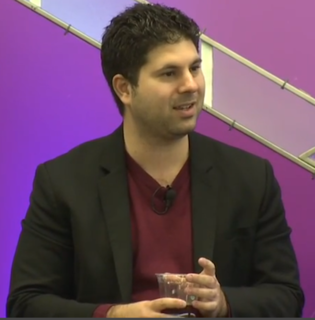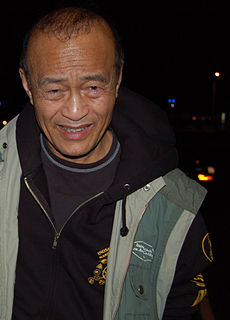A Quote by Robert Thurman
In the practice of exchanging self & other, paradoxes abound.
Quote Topics
Related Quotes
Well, think of what I’m doing to you right now. For me I’m the self, and you’re the object. For you, of course, it’s the exact opposite—you’re the self to you and I’m the object. And by exchanging self and object, we can project ourselves onto the other and gain self-consciousness. Volitionally.” “I still don’t get it, but it sure feels good.” “That’s the whole idea,” the girl said.
There is a new science of complexity which says that the link between cause and effect is increasingly difficult to trace; that change (planned or otherwise) unfolds in non-linear ways; that paradoxes and contradictions abound; and that creative solutions arise out of diversity, uncertainty and chaos.
The burning conviction that we have a holy duty towards others is often a way of attaching our drowning selves to a passing raft. What looks like a giving hand is often a holding on for dear life. Take away our holy duties and you leave our lives puny and meaningless. There is no doubt that in exchanging a self-centered for a selfless life we gain enormously in self-esteem. The vanity of the selfless, even those who practice utmost humility, is boundless.
As more and more people are automated out of the economy through robotics and self-driving cars and other technologies, there will be a way to create value for other human beings online. There will be a virtual economy for exchanging value, goods and services, entertainment experiences, and all that.
All the classical meditation traditions, in one way or another, stress nonattachment to the self as a goal of practice. Oddly, this dimension is largely ignored in scientific research, which tends to focus on health and other such benefits. I suppose the difference has to do with the contrast in views of the self from the spiritual and scientific perspectives. Scientists value the self; spiritual traditions have another perspective.



































